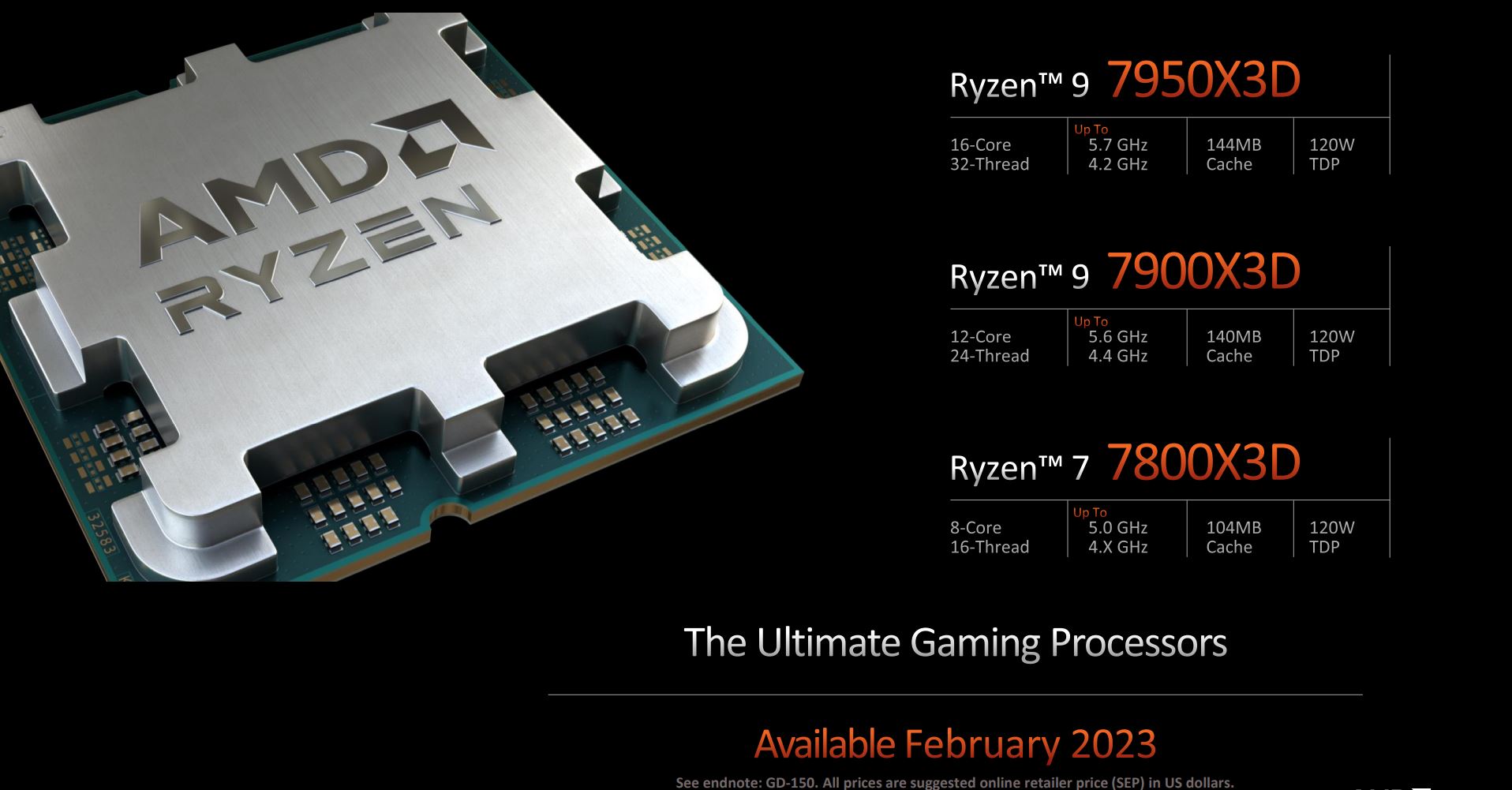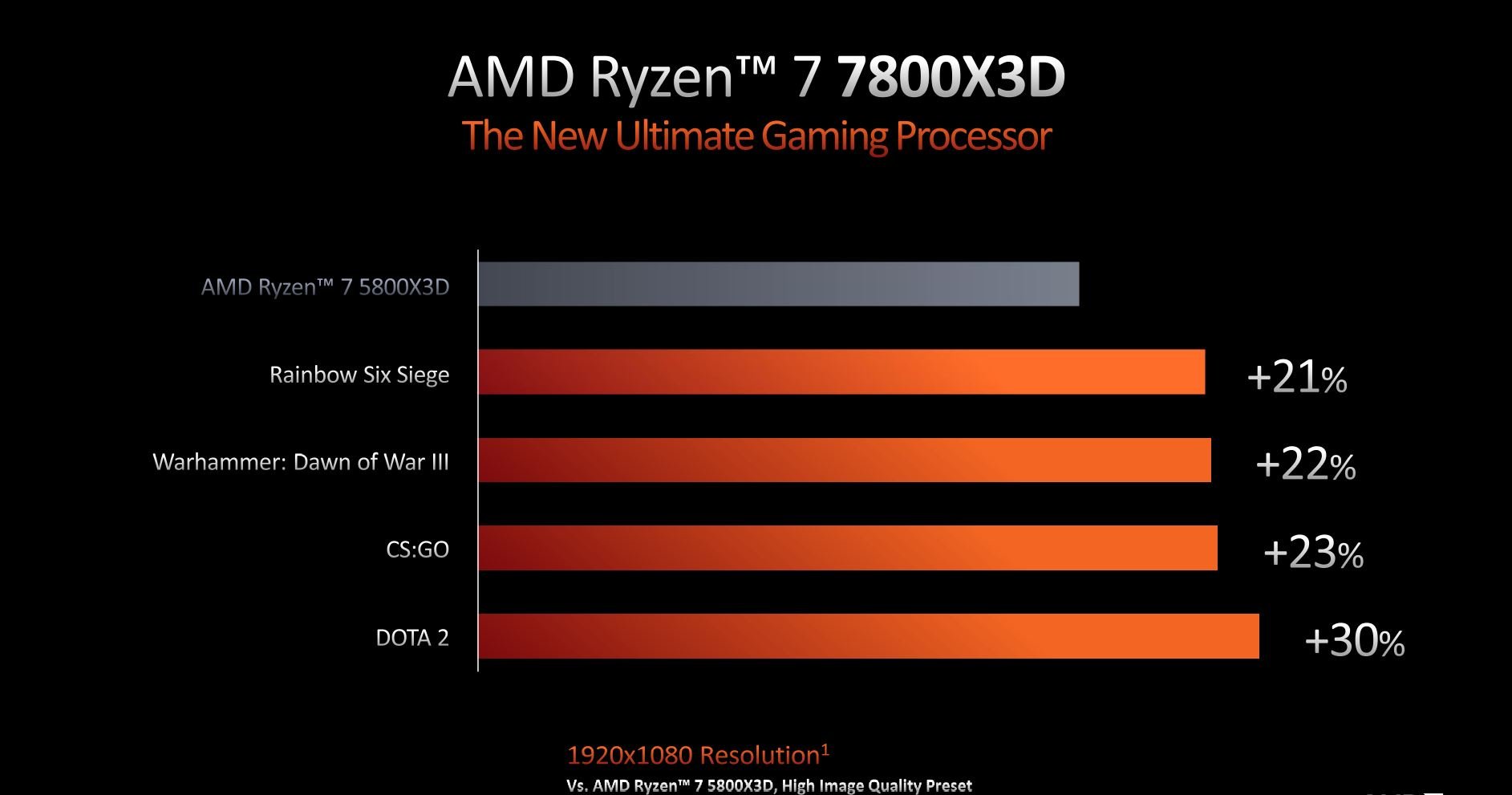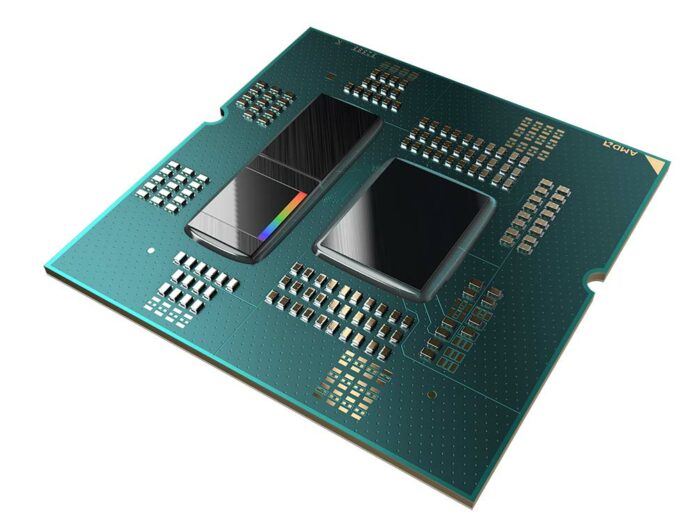Following on from the high-performance Ryzen 7000 Series desktop launch last fall – Club386 reviewed all four chips – AMD uses the pretext of CES 2023 to roll out a trio of eagerly anticipated, cache-enriched 7000 Series X3D models primed for superlative gaming above all else. Building on foundations laid down by last-gen Ryzen 7 5800X3D, here is what you need to know.

One becomes three for Ryzen 7000 Series. Listening to enthusiasts, AMD brings lots more L3 cache to the table. You may recall existing Ryzen 9 7950X carries a total of 80MB of L2+L3 cache, increased to 144MB for 7950X3D. As AMD does not adjust L2, remaining at 1MB per core, we know the X3D refers to 128MB of L3, which is exactly double that of vanilla 7950X.
AMD deliberately opts for massive multi-core performance from 7950X by installing a 170W TDP. As having extra L3 cache burns through more power, it’s interesting 7950X3D actually drops TDP to just 120W, suggesting that while light-load performance is likely to be similar, many-thread application throughput is almost certainly some way lower than 7950X.
That’s okay though, as 7950X3D is presented as a super-fast gaming solution first and foremost. If you’re wondering, the means by which AMD doubles L3 cache, through stacking layers, is the same as on the previous generation.
How Ryzen 7000 Series X3D Models Stack Up
| Model | Cores / Threads | TDP | L3 Cache | Base Clock | Boost Clock | Launch MSRP |
|---|---|---|---|---|---|---|
| Ryzen 9 7950X3D | 16 / 32 | 120W | 128MB | 4.2GHz | 5.7GHz | TBC |
| Ryzen 9 7950X | 16 / 32 | 170W | 64MB | 4.7GHz | 5.7GHz | $699 |
| Ryzen 9 7900X3D | 12 / 24 | 120W | 128MB | 4.4GHz | 5.6GHz | TBC |
| Ryzen 9 7900X | 12 / 24 | 170W | 64MB | 4.7GHz | 5.6GHz | $549 |
| Ryzen 7 7800X3D | 8 / 16 | 120W | 96MB | TBC | 5.0GHz | TBC |
| Ryzen 7 7700X | 8 / 16 | 105W | 32MB | 4.5GHz | 5.4GHz | $399 |
| Ryzen 5 7600X | 6 / 12 | 105W | 32MB | 4.7GHz | 5.3GHz | $299 |
Shifting gears down to Ryzen 9 7900X3D, AMD uses an identical efficient-wattage and double-L3 strategy. Lower base clocks reinforce the notion X3D chips won’t be as good at multi-threading, but you can’t have it all.
Last but not least, Ryzen 7 7800X3D is interesting as it introduces an x800-class chip into the Ryzen 7000 Series range. Running with the same 8C16T topology as Ryzen 7 7700X, this time around the power, at 120W, is actually increased from a similar chip. What’s also clear is the single-CCD processor benefits more greatly, in percentage terms, from the extra 64MB of L3 availed by X3D technology. Here, AMD jumps 200 per cent, rather than 100 per cent for 7950X3D and 7900X3D.

The Best Gaming Chips?
What does all of this mean to the gamer, we hear you ask? AMD provides in-house-tested guidance against the already excellent Ryzen 7 5800X3D by comparing it to the 7000 Series counterpart in a few games. These are cherry-picked examples, one would think, yet the results are undeniable; the new chip is over 20 per cent faster at subsystem-limited FHD.
7800X3D is cited as ‘the new ultimate gaming processor,’ even though its frequencies and L3 cache are both lower than 7900X3D/7950X3D. Part of this reason is attributed to lower latencies emanating from having a single-CCD, another may be higher average core speeds due to sharing the 120W TDP – it’s easier to drive eight cores higher than 12 or 16 when in the same power envelope, right?
Though not provided in materials, AMD also cites Ryzen 9 7950X3D as between 13 and 24 per cent faster than rival Intel Core i9-13900K in select gaming tests also run at FHD, whilst also being faster for multitasking. Quite the boast, and we can’t wait to put them through the Club386 wringer next month.
The big mystery is pricing, but going by how Ryzen 7 5800X3D was introduced, expect at least $100 more than non-X3D models bearing the same base name.

